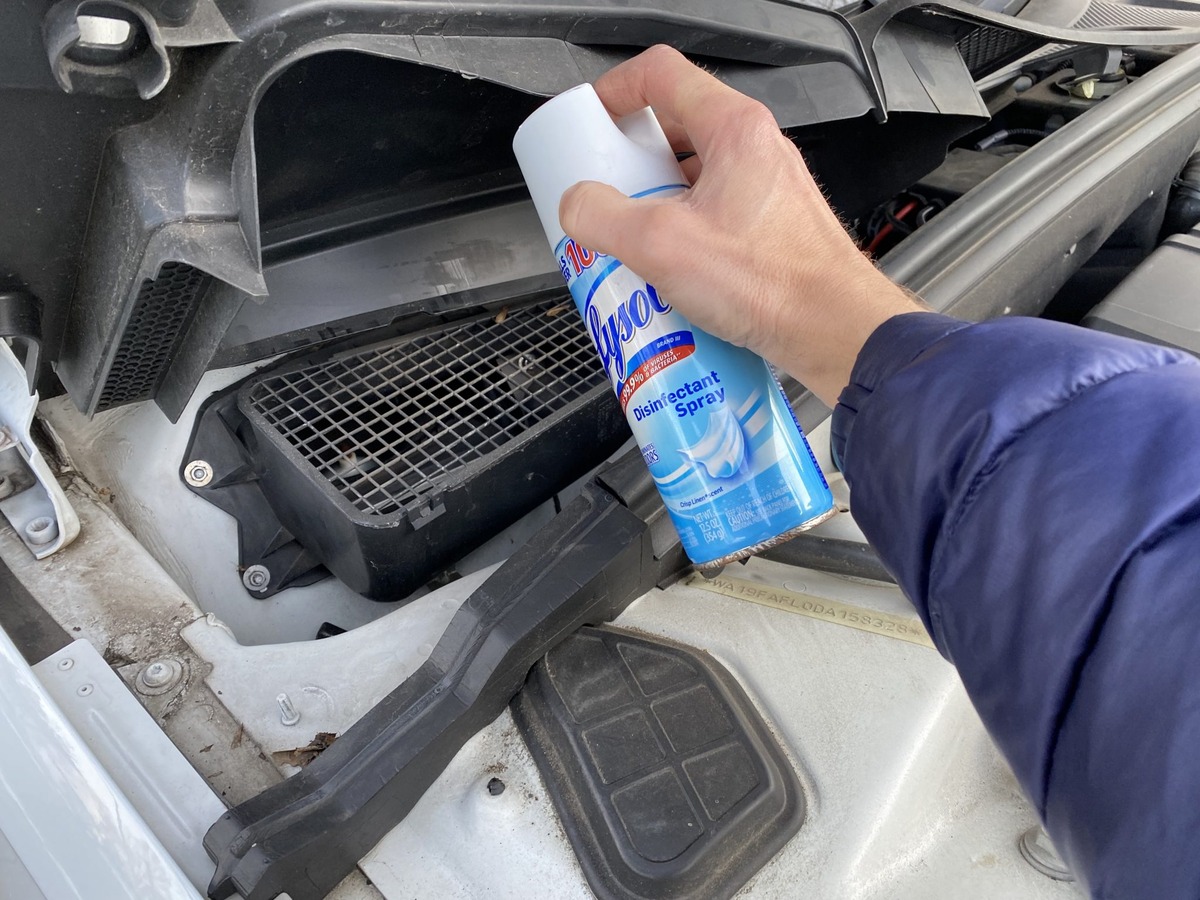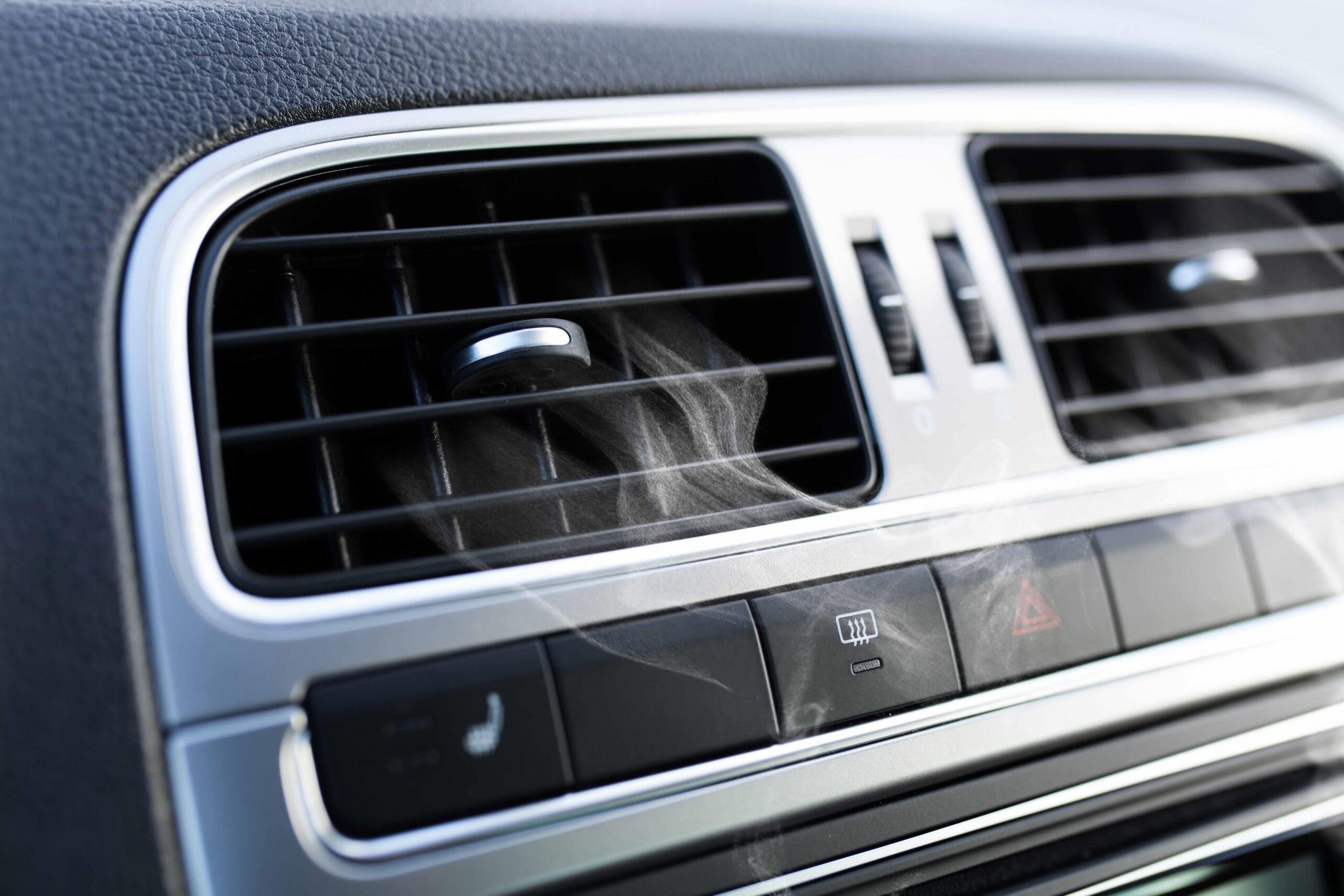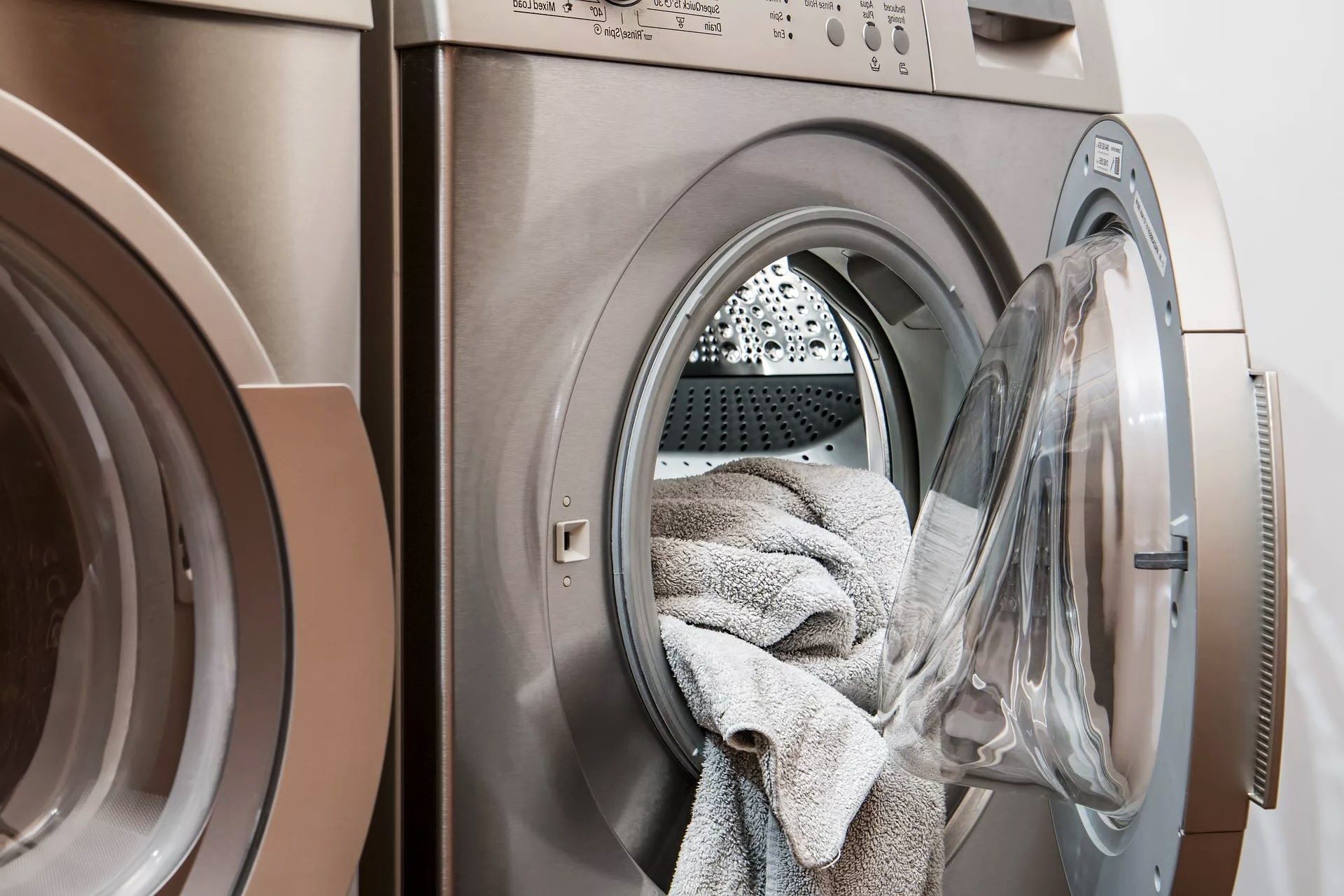Home>Home Maintenance>Why Does My Car Air Conditioning Smell Like Vinegar


Home Maintenance
Why Does My Car Air Conditioning Smell Like Vinegar
Modified: March 6, 2024
Discover the reasons why your car air conditioning smells like vinegar and learn how to tackle this issue with our expert home maintenance tips.
(Many of the links in this article redirect to a specific reviewed product. Your purchase of these products through affiliate links helps to generate commission for Storables.com, at no extra cost. Learn more)
Introduction
There’s nothing quite as unpleasant as stepping into your car and being greeted by a strong vinegar smell wafting from the air conditioning system. Not only does it make your car’s interior less inviting, but it can also be a sign of underlying issues that need attention. Understanding the causes of this smelly problem and knowing how to tackle it can help you get rid of the vinegar smell and improve the overall air quality in your car.
When your car’s air conditioning system emits a vinegar-like odor, it’s usually an indication of bacterial growth or mold and mildew buildup. These issues can arise due to various reasons, including a dirty or contaminated cabin air filter, moisture accumulation, or improper maintenance of the air conditioning system.
In this article, we will explore the possible causes of a vinegar smell in your car’s air conditioning and provide you with effective cleaning and preventive measures to address the issue. By following these steps, you can restore a pleasant and fresh scent to your car’s interior and enjoy a comfortable and odor-free driving experience.
Key Takeaways:
- Say goodbye to the vinegar smell in your car’s air conditioning by cleaning and disinfecting the system, replacing the cabin air filter, and maintaining regular maintenance. Enjoy a fresh and pleasant driving experience!
- Eliminate the unpleasant vinegar odor in your car’s air conditioning system by addressing bacterial growth, mold and mildew build-up, and using the correct cabin air filter. Keep your car’s interior fresh and inviting!
Possible Causes of Vinegar Smell in Car Air Conditioning
When your car’s air conditioning system starts emitting a vinegar smell, it’s important to identify the root cause of the issue. Here are a few possible causes to consider:
- Bacterial Growth in Car Air Conditioning System: The warm and damp environment of your car’s air conditioning system can create the perfect breeding ground for bacteria. These bacteria can produce organic acids that result in the unpleasant vinegar smell. Common sources of bacterial growth include accumulated moisture, dirt, and debris in the air conditioning system.
- Mold and Mildew Build-up in Car Air Conditioning System: Mold and mildew thrive in moist environments, and the air conditioning system in your car can provide the ideal conditions for their growth. If there is excessive moisture or water accumulation within the system, mold and mildew can develop on the evaporator coils, ventilation ducts, or even on the cabin air filter. The release of volatile compounds from mold and mildew can produce the vinegar scent.
- Use of Wrong or Contaminated Cabin Air Filter: The cabin air filter in your car plays a crucial role in filtering out dust, pollen, and other particulates from the incoming air. However, using the wrong type of filter or failing to replace it regularly can lead to an accumulation of contaminants. These contaminants can promote bacterial growth or contribute to mold and mildew development, resulting in an unpleasant vinegar smell.
- Improper Maintenance of Air Conditioning System: Regular maintenance of your car’s air conditioning system is essential to prevent any odor-related issues. Failing to clean or service the system regularly can allow dirt, dust, and moisture to build up, creating an environment conducive to bacterial growth or mold and mildew formation.
Identifying the specific cause of the vinegar smell in your car’s air conditioning system will help you determine the most effective course of action to eliminate the odor and prevent it from recurring.
Bacterial Growth in Car Air Conditioning System
One of the common causes of a vinegar smell in your car’s air conditioning system is the growth of bacteria. The warm and damp environment within the system provides an ideal breeding ground for bacteria to thrive. When these bacteria multiply, they produce organic acids that emit a pungent vinegar-like odor, which can be quite unpleasant.
Bacterial growth can occur due to various factors, including:
- Poor maintenance and infrequent cleaning of the air conditioning system
- Dirt, dust, and debris collecting within the system
- Moisture accumulation from condensation
To address the issue of bacterial growth, here are some steps you can take:
- Clean and Disinfect: Start by cleaning the interior of your car, including the dashboard, vents, and air conditioning controls. Use a mild detergent or specialized automotive interior cleaner to remove any dirt or grime that may contribute to bacterial growth. Additionally, disinfecting wipes or sprays designed for automotive use can help eliminate bacteria.
- Change Cabin Air Filter: Consider replacing the cabin air filter with a new one. The existing filter may be contaminated with bacteria, contributing to the unpleasant odor. Refer to your car’s manual or consult a professional to ensure you choose the correct type of filter for your vehicle.
- Use Air Conditioning Deodorizer: Air conditioning deodorizers are designed to eliminate foul odors and kill bacteria within the system. These products typically come in spray or aerosol form and can be applied directly to the air vents, evaporator coils, or even into the intake of the cabin air filter. Follow the instructions provided by the manufacturer when using an air conditioning deodorizer.
- Maintain Regular Cleaning: To prevent bacterial growth and associated odors, it’s important to maintain a regular cleaning schedule for your car’s air conditioning system. This includes cleaning the vents and evaporator coils, as well as periodically disinfecting the system. Consulting a professional for a thorough air conditioning system cleaning is also recommended to ensure optimal performance and fresh air.
By addressing bacterial growth in your car’s air conditioning system, you can effectively eliminate the vinegar smell and enjoy a fresh and pleasant driving experience.
Mold and Mildew Build-up in Car Air Conditioning System
An unpleasant vinegar smell in your car’s air conditioning system may also be caused by the build-up of mold and mildew. Mold and mildew thrive in damp and dark environments, making the air conditioning system an ideal breeding ground. When moisture is present within the system, such as from condensation or leaks, it creates the perfect conditions for mold and mildew growth.
The release of volatile organic compounds (VOCs) from mold and mildew can result in a strong vinegar odor that permeates throughout the car’s interior. This not only affects the air quality but can also be harmful to your health, especially if you have allergies or respiratory conditions.
To address the issue of mold and mildew build-up in your car’s air conditioning system, consider the following steps:
- Clean and Disinfect: Begin by thoroughly cleaning the interior of your car, paying attention to areas such as the vents, dashboard, and air conditioning controls. Use a specialized cleaner designed to eliminate mold and mildew, ensuring that you follow the instructions provided by the manufacturer.
- Replace Cabin Air Filter: Check the condition of your car’s cabin air filter and replace it if necessary. A contaminated filter can harbor mold spores and contribute to the unpleasant odor. Opt for a high-quality cabin air filter that is designed to effectively filter out allergens and contaminants.
- Apply Mold and Mildew Remover: There are several mold and mildew removers available in the market specifically formulated for automotive use. These products can be applied directly to the air vents, evaporator coils, and other areas prone to mold and mildew growth. Follow the instructions on the product label for effective and safe usage.
- Ensure Proper Drainage: Check for any signs of water leakage or clogged drainage tubes within the air conditioning system. Unclog any blockages and repair any leaks to prevent moisture accumulation, which can contribute to mold and mildew growth. Consult a professional if you require assistance in identifying and resolving drainage issues.
- Regular Maintenance: Establish a regular maintenance routine for your car’s air conditioning system to prevent mold and mildew build-up. This includes periodic cleaning of the vents, evaporator coils, and other components. Consider seeking professional assistance for comprehensive system cleaning to ensure thorough removal of mold and mildew.
By addressing mold and mildew build-up in your car’s air conditioning system, you can eliminate the vinegar smell and maintain a fresh and healthy environment inside your vehicle.
To get rid of the vinegar smell in your car’s air conditioning, try replacing the cabin air filter and using a disinfectant spray designed for air vents. This can help eliminate any mold or bacteria causing the odor.
Use of Wrong or Contaminated Cabin Air Filter
Another possible cause of a vinegar smell in your car’s air conditioning system is the use of the wrong or contaminated cabin air filter. The cabin air filter is responsible for trapping dust, pollen, and other airborne particles to ensure clean air circulation within the car’s interior. However, if the filter is not properly maintained or if the wrong type of filter is used, it can become contaminated and contribute to unpleasant odors.
Here are some factors to consider regarding the cabin air filter:
- Choosing the Correct Filter: It’s essential to select the right cabin air filter for your specific car make and model. Consult your vehicle’s manual or ask a professional for guidance to ensure you purchase the appropriate filter. Using the wrong filter can lead to reduced filtration efficiency and the accumulation of contaminants that produce odors.
- Regular Replacement: Cabin air filters should be replaced according to the manufacturer’s recommendations or as indicated by reduced air flow or foul odors. Regular replacement helps maintain optimal air quality and prevents unpleasant smells from developing.
- Contaminated Filters: If the cabin air filter becomes dirty or contaminated, it can contribute to an unpleasant odor. Contaminants such as dirt, dust, pollen, and even moisture can accumulate on the filter, providing a breeding ground for bacteria, mold, and mildew. Regular maintenance, including cleaning or replacing the filter as needed, is crucial to prevent odor-related issues.
If you suspect that the cabin air filter is the source of the vinegar smell in your car’s air conditioning system, take the following steps:
- Inspect the Filter: Remove the cabin air filter and examine its condition. If it is visibly dirty, clogged, or damaged, it’s time for a replacement.
- Choose a High-Quality Filter: Purchase a new cabin air filter that matches your car’s specifications. Look for filters that offer high filtration efficiency and have good ratings for odor removal.
- Proper Installation: Ensure the new filter is correctly installed, following the manufacturer’s instructions. Pay attention to the airflow direction indicated on the filter to ensure it is oriented correctly.
- Maintain Regular Filter Maintenance: Establish a schedule for regular cabin air filter maintenance, including cleaning or replacement as recommended by the manufacturer or indicated by reduced air flow or foul odors. This helps maintain optimal air quality and prevents odor issues in the future.
By using the correct cabin air filter and maintaining it regularly, you can eliminate the vinegar smell and enjoy clean, fresh air inside your car.
Read more: Why Does My AC Smell Like Vinegar
Cleaning and Preventive Measures for Vinegar Smell in Car Air Conditioning
If you’re dealing with a vinegar smell in your car’s air conditioning system, there are several cleaning and preventive measures you can take to eliminate the odor and prevent it from recurring. Here are some effective steps to consider:
- Clean the Interior: Start by thoroughly cleaning the interior of your car. Remove any debris, trash, or food items that may be contributing to the unpleasant odor. Vacuum the carpets, seats, and floor mats to remove dirt and particles that can emit odors.
- Disinfect the Vents: Spray a disinfectant or use a specialized automotive vent cleaner to clean the air vents. Follow the instructions provided by the manufacturer to ensure safe usage. This helps eliminate any bacteria or mold spores that may be causing the vinegar smell.
- Clean the Evaporator Coils: The evaporator coils in your car’s air conditioning system can accumulate dirt, dust, and moisture, providing a breeding ground for bacteria and mold. Consider using a coil cleaner designed for automotive use to effectively clean the coils and eliminate any odors associated with bacterial or mold growth. Consult a professional if you’re not comfortable performing this task yourself.
- Check for Leaks: Inspect the air conditioning system for any signs of leaks. Water leakage can occur due to a clogged drainage tube or a faulty seal. Addressing leaks prevents excessive moisture build-up, which can lead to bacterial growth or mold and mildew development.
- Replace Cabin Air Filter: Replace the cabin air filter with a new one to ensure that it is not contributing to the vinegar smell. Choose a high-quality filter designed for your car make and model, and follow the manufacturer’s instructions for proper installation.
- Avoid Strong Odors: Be mindful of the substances and products you introduce into your car’s interior. Avoid strong-smelling air fresheners, perfumes, or cleaning chemicals that can mask or mix with the vinegar smell, creating a more unpleasant scent.
- Maintain Regular Maintenance: Establish a routine to regularly clean and maintain your car’s air conditioning system. This includes cleaning the vents, evaporator coils, and other components, as well as periodically disinfecting the system. Consult a professional for a comprehensive air conditioning system cleaning if needed.
By following these cleaning and preventive measures, you can effectively eliminate the vinegar smell in your car’s air conditioning system and maintain a fresh and pleasant environment inside your vehicle. Regular maintenance and prompt attention to any odors or issues will help ensure optimal performance and a comfortable driving experience.
Conclusion
A vinegar smell in your car’s air conditioning system can be an unpleasant and bothersome issue. However, by understanding the possible causes and implementing the appropriate cleaning and preventive measures, you can eliminate the odor and enjoy a fresh and pleasant driving experience.
Whether it’s bacterial growth, mold and mildew build-up, the use of the wrong cabin air filter, or a combination of factors, addressing the root cause is essential to eliminate the vinegar smell. Regular cleaning and maintenance of your car’s air conditioning system, including disinfecting, replacing the cabin air filter, and cleaning the evaporator coils, can help prevent odor-related issues.
Additionally, maintaining a clean car interior, avoiding strong odors, and promptly addressing leaks or other issues within the air conditioning system can contribute to a fresh and inviting atmosphere inside your vehicle.
Remember, it’s important to consult your vehicle’s manual or seek professional assistance if you’re unsure about the specific maintenance requirements or if you require a thorough cleaning of the air conditioning system.
By following these guidelines, you can say goodbye to the vinegar smell and enjoy a comfortable and odor-free driving experience. Maintain regular maintenance, cleanliness, and proactive measures to ensure optimal performance and fresh air circulation in your car’s air conditioning system.
Frequently Asked Questions about Why Does My Car Air Conditioning Smell Like Vinegar
Was this page helpful?
At Storables.com, we guarantee accurate and reliable information. Our content, validated by Expert Board Contributors, is crafted following stringent Editorial Policies. We're committed to providing you with well-researched, expert-backed insights for all your informational needs.














